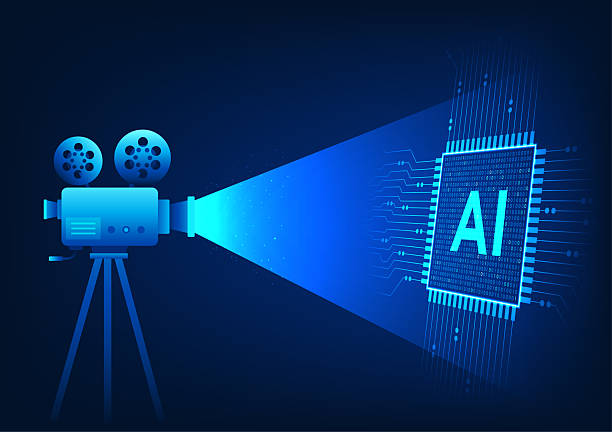Artificial Intelligence (AI) is reshaping industries worldwide, and the entertainment sector is no exception. From scriptwriting and visual effects to personalized streaming recommendations, AI is playing an increasingly vital role in how movies and TV shows are created, distributed, and consumed.
In this blog, we’ll explore the opportunities and challenges of AI in movies and television, and how it’s redefining the future of entertainment.
1. Smarter Scriptwriting and Storytelling
AI-powered tools are now capable of assisting with scriptwriting by analyzing thousands of successful storylines, character arcs, and dialogues. These tools can:
- Suggest plot structures based on audience preferences.
- Help writers overcome creative blocks.
- Predict how audiences might react to different storylines.
While AI won’t replace human creativity, it acts as a co-writer—helping screenwriters develop stronger narratives faster.
2. Visual Effects (VFX) and Animation
Creating realistic visual effects and animations used to take months of manual work. AI has sped up this process by automating tasks such as:
- De-aging actors or digitally recreating historical figures.
- Enhancing CGI with lifelike details.
- Reducing production costs by streamlining editing.
For example, AI-powered deepfake technology is being tested to bring back legendary actors or enhance performances, raising both excitement and ethical debates.
3. Casting and Virtual Actors
AI is even influencing casting decisions. By analyzing past performances, audience reactions, and box office success, AI tools can suggest which actors might be the best fit for a role.
In addition, virtual actors and digital humans are emerging. These computer-generated personalities can be used in films, TV commercials, or even interact with fans on social media—blurring the line between real and digital stardom.
4. Personalized Streaming Experiences
Platforms like Netflix, Amazon Prime, and Disney+ rely heavily on AI algorithms to recommend shows and movies based on user behavior.
- AI studies your watch history to suggest content you’re more likely to enjoy.
- It predicts trending shows and adjusts recommendations in real time.
- Some platforms are experimenting with interactive storylines that adapt to your choices.
This personalization keeps viewers engaged while ensuring streaming services stay competitive.
5. AI in Film Editing and Production
Editing is one of the most time-consuming aspects of filmmaking. AI simplifies the process by:
- Automatically cutting scenes based on pre-set rules.
- Enhancing color correction and sound mixing.
- Analyzing test screenings to provide audience feedback.
This helps directors and editors save time while focusing more on creative decisions.
6. Ethical Questions Around AI in Entertainment
While AI brings innovation, it also raises important ethical challenges:
- Should studios be allowed to use AI-generated actors without consent?
- Could AI replace jobs for writers, editors, or crew members?
- How do we prevent misuse of deepfake technology?
The entertainment industry is still figuring out how to balance creativity, technology, and ethics as AI continues to grow.
7. The Future of Movies and TV with AI
Looking ahead, we can expect AI to play an even larger role in:
- Hyper-personalized content where viewers might get customized endings.
- AI-driven filmmaking that reduces costs and speeds up production.
- Virtual reality (VR) and augmented reality (AR) integration powered by AI for immersive viewing experiences.
In short, the future of entertainment will likely be a mix of human creativity and machine intelligence—offering audiences richer, more interactive experiences than ever before.
Final Thoughts
AI is changing the future of movies and TV in groundbreaking ways. From smarter scriptwriting and realistic VFX to personalized streaming and virtual actors, the possibilities are endless. At the same time, the industry must navigate ethical concerns to ensure technology enhances, rather than replaces, human creativity.
As we move forward, one thing is clear: the collaboration between AI and entertainment is not just shaping the stories we watch—it’s shaping the way we experience them.

